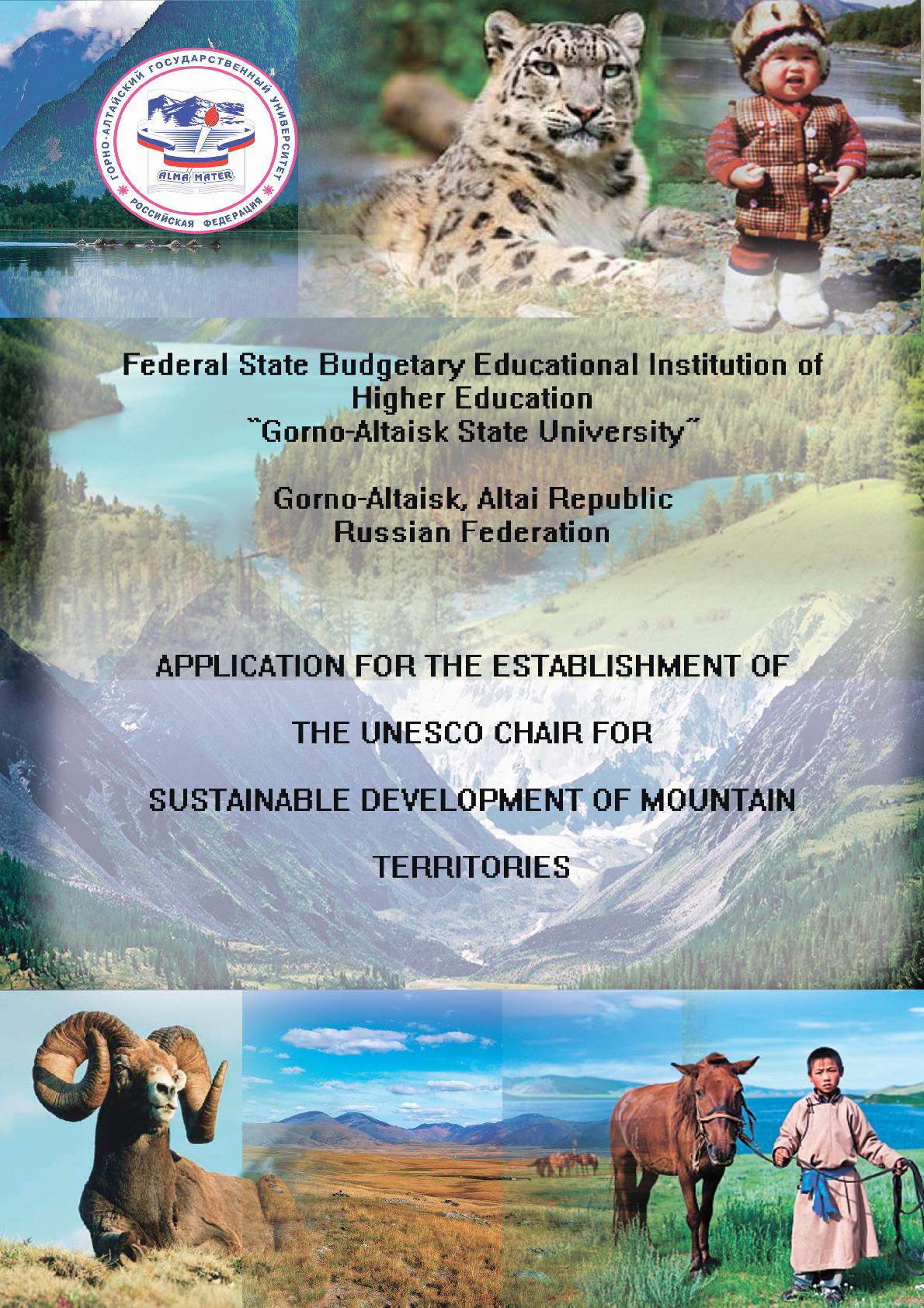UNESCO chair for Sustainable Development of Mountain Territories
 The UNESCO has approved the establishment of a UNESCO Chair for Sustainable Development of Mountain Territories at Gorno-Altaisk State University. The official agreement has been signed on November 29, 2021.
The UNESCO has approved the establishment of a UNESCO Chair for Sustainable Development of Mountain Territories at Gorno-Altaisk State University. The official agreement has been signed on November 29, 2021.
Today mountain territories, such as the Altai Republic, draw constant attention at both the international and national levels as vital and extremely vulnerable "keepers" of ethnic, cultural, and biological diversity. At the same time there are still a great number of challenges, which should be addressed and solved in a sustainable way. In this situation the establishment of the UNESCO Chair for Sustainable Development of Mountain Territories will allow the creation of favorable conditions for a constructive dialogue between civilizations, cultures, and peoples who live in similar conditions and have experience in solving difficult problems of social and economic development while preserving the environment and their unique territories. And furthermore, the establishment of the Chair will ensure the sustainability of the SUNRAISE project outcomes, in particular its curricula, research framework and the stakeholder coopperation platform, and open new horizons for joint activities of the Project members.
The purpose of the Chair shall be to promote an integrated system of research, training, information and documentation of sustainable development of mountain territories. It will facilitate collaboration between high-level, internationally-recognized researchers and teaching staff of GASU and other institutions.
The specific objectives of the Chair are to:
- Study the influence of climate change, manifestation of adverse natural conditions, and the human impact on socio-, bio-, and geosystems of Altai and other mountain regions of the Russian Federation;
- Study and preserve tangible and intangible cultural heritage of the indigenous peoples living in the Altai Republic;
- Assist in the social and economic prosperity of the Grand Altai region through sustainable development of agriculture and ecological tourism in mountain areas;
- Develop a system of lifelong and accessible education on the issues of sustainable development of mountain territories in Russian Federation and transboundary cooperation between Russia, Mongolia, China and Kazakhstan; and,
- Cooperate closely with UNESCO and other Chairs in relevant programmes and activities.
- Its target beneficiaries will include educational and scientific institutions, public authorities and local governments, local communities, protected areas, representatives of business and agricultural sectors, and NGOs.
The openness, practical orientation, and cooperation at regional, national, and international levels will become major principles of all activities of the Chair. Special attention will be paid to using the UNESCO World Heritage sites as "laboratories" and educational platforms for sustainable development as well as for the preservation of the cultural heritage of indigenous communities living in the area.
The SUNRASE project outcomes and the Chair’s ongoing work can become a good basis for decision-making, including on the legislative level.


